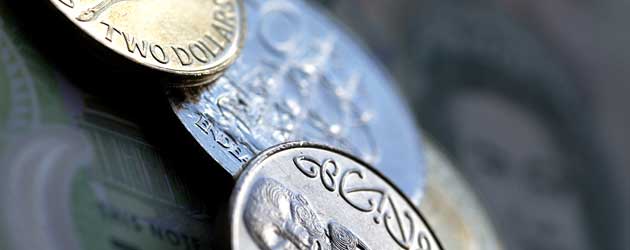
The Pound to New Zealand Dollar exchange rate (GBP/NZD) grew by around half a cent to 2.0215 at midnight last night when it was announced that GfK’s index of UK Consumer Confidence rose by +6 points from -13 to -7 during January.
The stronger-than-anticipated reading shows that British consumers are currently more optimistic than they have been since September 2007. With UK GDP soaring, Unemployment plummeting and private sector output accelerating during the final three quarters of 2013, Consumer Confidence put in an admirable performance, rising by over 20 points during that 9-month spell alone.
Whilst Sterling was boosted by the optimistic Consumer Confidence report and a separate set of figures showing that UK house building increased at its fastest rate for 6 years during 2013, the ‘Kiwi’ Dollar was damaged by a drop-off in global risk appetite.
It was reported yesterday that the Chinese Manufacturing PMI sunk to 49.5 in January with jobs being cut at a concerning rate not seen since 2009. The disappointing dataset out of the world’s second largest economy compounded the overriding mood around financial markets at the moment, which is to remain averse to risk.
Also working against the New Zealand Dollar was the Federal Reserve’s decision to taper asset purchases by -$10 billion again in January. The sturdy US GDP print of 3.2%, which signals that stimulus is likely to be reduced on a monthly basis from now on, did little to boost NZD’s appeal.
Although taper talk and Chinese softness had caused the majority of risk-sensitive assets to plummet at the beginning the week, the New Zealand Dollar had retained a special resilience ahead of Wednesday’s night’s Reserve Bank of New Zealand rate decision. The RBNZ is explicit about its intensions to hike rates in the first half of the year and this caused traders to hold-off on ‘Kiwi’ shorting in case of a rate increase in January.
However, GBP/NZD grew by around 1.5 cents following the RBNZ press conference, in which the Central Bank opted to maintain its current 2.50% benchmark interest rate due to concerns over the strength of the ‘Kiwi’.
The RBNZ’s decision not to hike paved the way for the New Zealand Dollar’s losses and GBP/NZD is currently trading close to a monthly high as a result.
However, there was some respite for the ‘Kiwi’ last night, as demand picked up momentarily in response to a stronger-than-anticipated domestic Trade Balance reading. Rising from NZ$183 million in November to NZ$523 million in December the New Zealand trade surplus widened as China cemented itself as the number one importer of ‘Kiwi’ goods. A title that had long been held by New Zealand’s cousins on the other side of the Tasman sea: Australia.

Comments are closed.